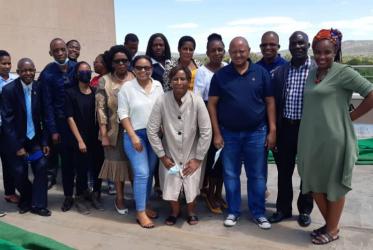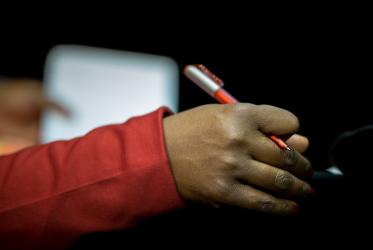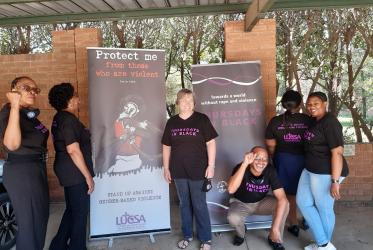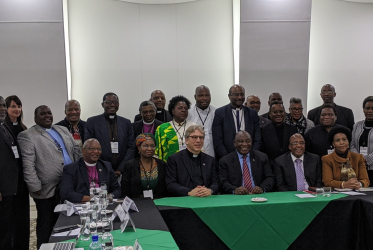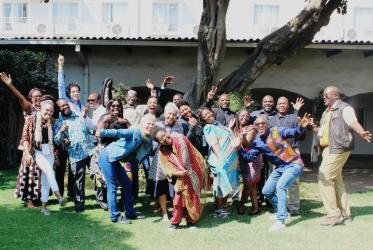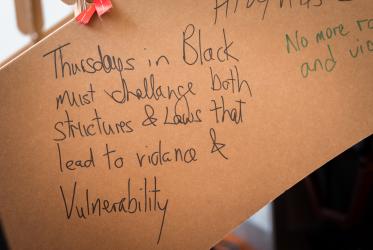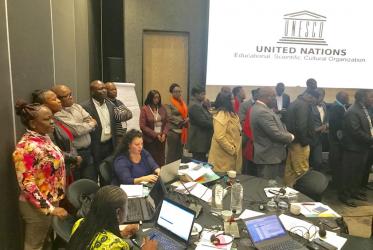Displaying 1 - 20 of 42
“Gathering in Grief” mourns Rev. Phumzile Mabizela
07 July 2021
South Africans draw hope despite recurring challenges
16 December 2019
WCC delegation meets with South African President Ramaphosa
09 December 2019
Young people in Togo: “Hear our voice! We want to tell our stories!”
07 November 2019
Churches in southern Africa stand against violence, xenophobia
10 October 2019
When you strike the women, you strike a rock
18 September 2019
Knowledge of gender roles deepens in Togo
03 June 2019
Thursdays in Black: sharing support, transforming lives
21 February 2019
WCC-EHAIA pioneer receives honorary doctorate
21 March 2018
